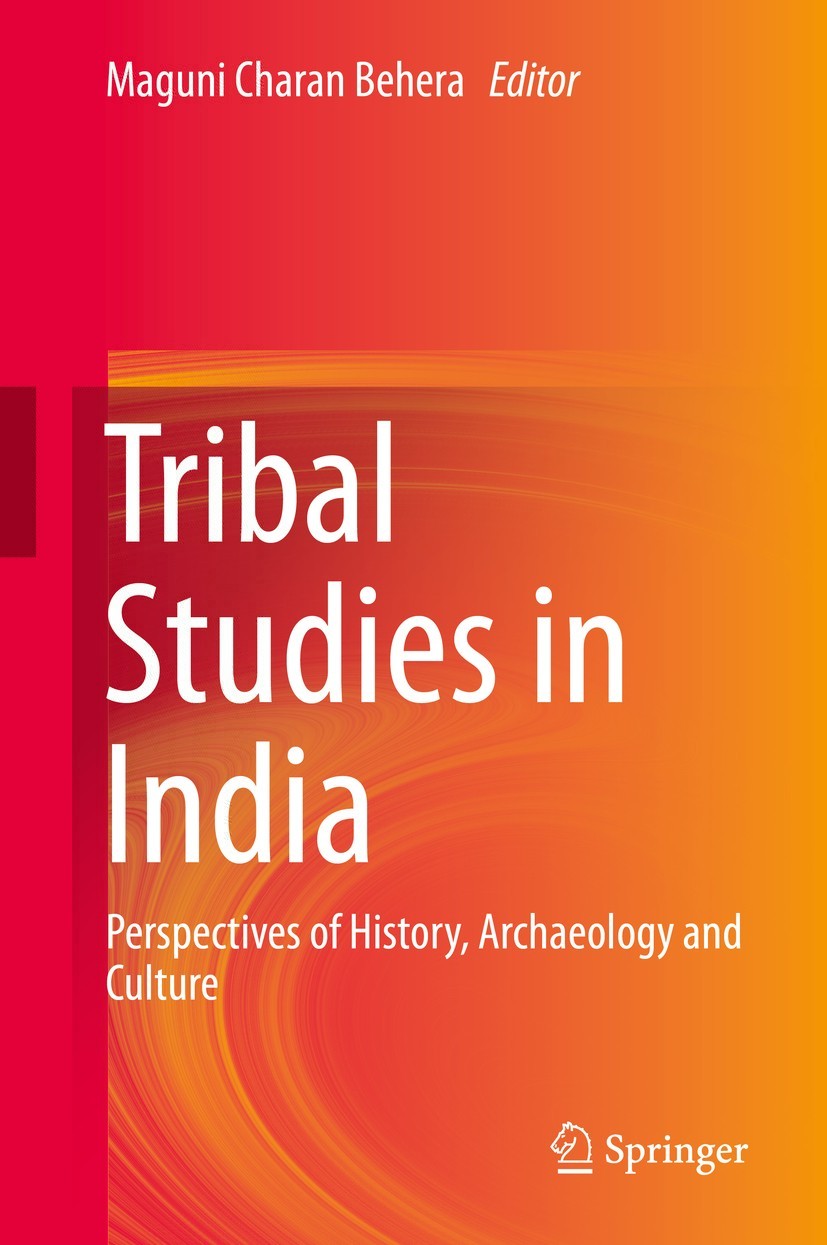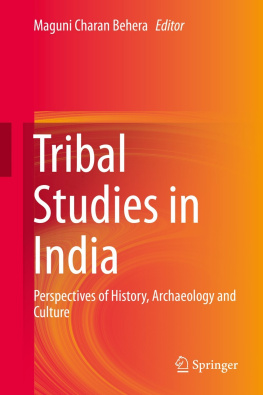Maguni Charan Behera - Tribal Studies in India
Here you can read online Maguni Charan Behera - Tribal Studies in India full text of the book (entire story) in english for free. Download pdf and epub, get meaning, cover and reviews about this ebook. publisher: Springer Nature, genre: Politics. Description of the work, (preface) as well as reviews are available. Best literature library LitArk.com created for fans of good reading and offers a wide selection of genres:
Romance novel
Science fiction
Adventure
Detective
Science
History
Home and family
Prose
Art
Politics
Computer
Non-fiction
Religion
Business
Children
Humor
Choose a favorite category and find really read worthwhile books. Enjoy immersion in the world of imagination, feel the emotions of the characters or learn something new for yourself, make an fascinating discovery.
- Book:Tribal Studies in India
- Author:
- Publisher:Springer Nature
- Genre:
- Rating:4 / 5
- Favourites:Add to favourites
- Your mark:
- 80
- 1
- 2
- 3
- 4
- 5
Tribal Studies in India: summary, description and annotation
We offer to read an annotation, description, summary or preface (depends on what the author of the book "Tribal Studies in India" wrote himself). If you haven't found the necessary information about the book — write in the comments, we will try to find it.
Tribal Studies in India — read online for free the complete book (whole text) full work
Below is the text of the book, divided by pages. System saving the place of the last page read, allows you to conveniently read the book "Tribal Studies in India" online for free, without having to search again every time where you left off. Put a bookmark, and you can go to the page where you finished reading at any time.
Font size:
Interval:
Bookmark:


This Springer imprint is published by the registered company Springer Nature Singapore Pte Ltd.
The registered company address is: 152 Beach Road, #21-01/04 Gateway East, Singapore 189721, Singapore
Dedicated to Pasa, Sunny, Shibi, Dimpi and Chinu
Editing a volume of editors own choice is a very challenging venture. It is not an easy task to identify willing contributors on the theme. The time at the disposal of willing contributors may not fit into the time schedule of publication of the volume. At such a juncture, a few agree to permit the reproduction of earlier published articles. So, obtaining permission from author and copyright holders often turns out to be a challenging exercise. Then, the greatest hurdle that stands ahead is selection of a good publisher. Obviously, a great number of people directly and indirectly involve in making the publication of an invited edited volume successful. All of them owe me obligations. I wish I could name all of them here religiously!
However, I would like to put on record my highest sense of gratitude I owe to Professor B.K. Tripathy, Indira Gandhi National Tribal University, Amarkantak, and Professor M.C. Arun, Manipur University, for their encouragement.
I sincerely acknowledge the help I received from Dr. Dignata Hati Baruaha, Assistant Professor in Political Science, North Lakihmpur College, Lakihmpur, on whatever matter I approached him.
Two papers in this volume are reprints for which necessary permission is obtained from the respective editor(s), publishers and author(s), as applicable. I am grateful to all of them. Due acknowledgement is placed in the footnote of the title page of the respective papers.
I take this opportunity to put on record my highest sense of gratitude to all the contributors to the volume. Without their cooperation and contributions, it would not have been possible to bring out this volume in one piece. I am grateful to all of them.However, the editor is not responsible in any way for the arguments, discussions and opinions expressed by the authors in their respective papers.
This volume is peer-reviewed. Papers included in this volume were reviewed by experts in the field and sent to the respective authors with comments, observations and suggestions for improvement. The editor is grateful to the reviewers for their comments in order to see the volume as a quality work and to the authors for the revisions and improvement.
The editor is also grateful to Springer for timely publication of this volume.
Fourth Generation
ABMAmerican Baptist Mission
An.S.I.Anthropological Survey of India
ASIArchaeological Survey of India
BHIPBihar Itihas Parishad
BSIBible Society of India
BSRBible Society Rangoon
CCAChotanagpore Charitable Association
Ch; ChapChapter
CUSChotanagpur Unnati Samaj
D2H/DTHDirect to Home
DUMDublin University Mission
EIEpigraphia Indica
GELGossner Evangelical Lutheran
GRPIGeneral Report on Public Instruction
HIVHuman Immunodeficiency Virus
HSOHaokip Students Organisation
IAThe Indian Antiquary
ICP-MSInductively Coupled Plasma Mass
IGRMSIndira Gandhi Rashtriya Manav Sangrahalaya
INAAInstrumental Neutron Activation Analysis
JASBJournal of the Asiatic Society of Bengal
JNUJawaharlal Nehru University
MRTMiddle-Range Theory
MSSManuscript(s)
NEThe Northeast
NEFANorth-East Frontier Agency
NEIHANorth-East India History Association
NEHUNorth-Eastern Hill University
NEIGMNorth-East India General Mission
NGONon-governmental Organisation
OTOld Testament
NTNew Testament
PVTGsParticularly Vulnerable Tribal Groups
SEMStructural Equation Modelling
SJSinghi Jain (Granthamala Series)
SPGSociety for the Propagation of the Gospel
SSICSecretary of State for India in Council
TVTelevision
Vol.Volume
v. (vv.)Verse (Verses)
XRDX-Ray Diffractometers
XRFX-Ray Fluorescence
ZAMZonal Anthropological Museums
Font size:
Interval:
Bookmark:
Similar books «Tribal Studies in India»
Look at similar books to Tribal Studies in India. We have selected literature similar in name and meaning in the hope of providing readers with more options to find new, interesting, not yet read works.
Discussion, reviews of the book Tribal Studies in India and just readers' own opinions. Leave your comments, write what you think about the work, its meaning or the main characters. Specify what exactly you liked and what you didn't like, and why you think so.








